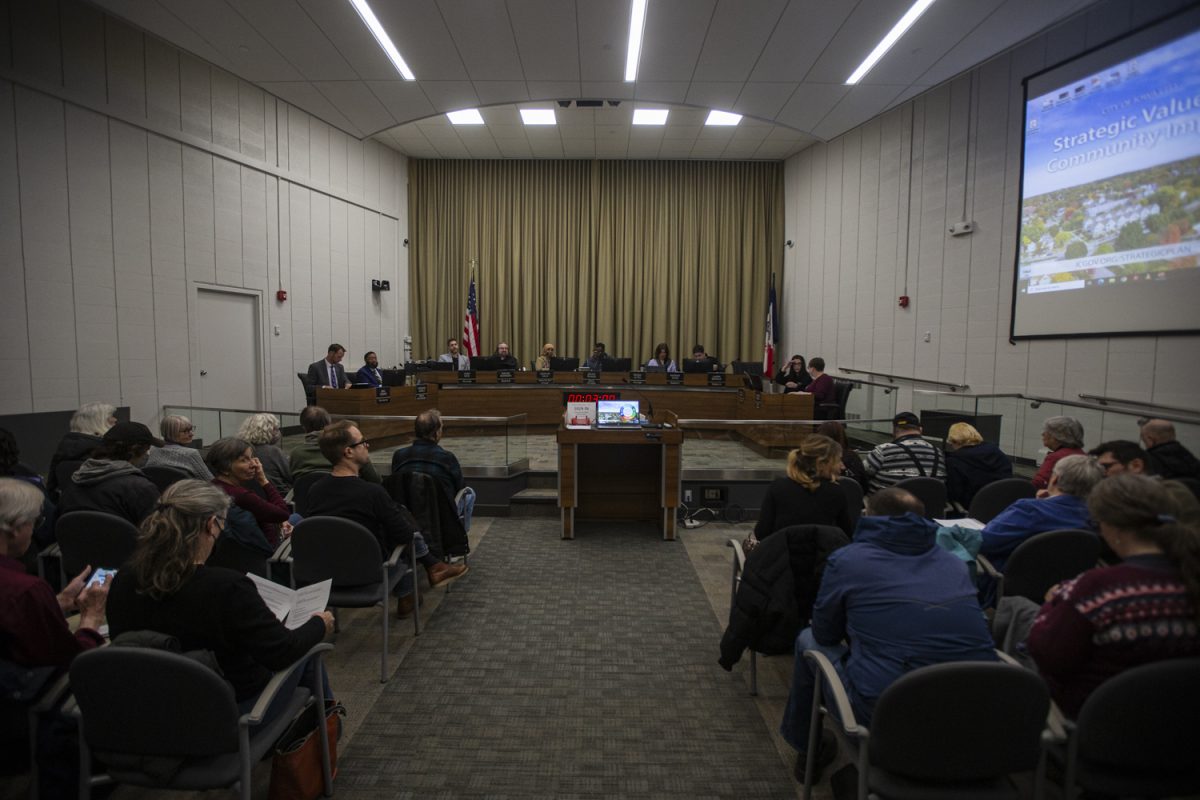Several different utility and parking rates are in the process of being increased after the Iowa City City Council meeting Tuesday night. Additionally, the fiscal 2025 budget was approved.
The city council kicked off the process of increasing water and wastewater rates, parking ramp fees, curbside recycling fees, and landfill fees for fiscal year 2025, which begins on July 1, 2024, and ends on June 30, 2025.
The utility rate and parking fee changes are considered an ordinance, which means the council will discuss and vote on these increases in its next two meetings. The council passed the first consideration of this item on Tuesday.
The proposed utility rate increases for the upcoming fiscal year are as follows:
- 3 percent increase in water rates
- 4 percent increase in wastewater rates
- $1 monthly increase per dwelling unit for residential solid waste curbside collection fee
- $2.50 per ton increase in landfill fees
The parking ramps that may see increases in their hourly fees are the Court Street Transportation Center, Tower Place, and the Capital Street and Dubuque Street parking ramps. All of these ramps would be increased by $1 per hour.
The Chauncey Swan and Harrison Street parking ramps are proposed to have a $1.25 hourly increase. Parking meters could see an increase between $0.75 and $1.50 per hour depending on location.
These rate changes would help pay for various projects the city has planned or is doing in its various facilities, City Manager Geoff Fruin said at the meeting. For example, the parking ramp fee increases would be used to help provide a revenue source for the fare-free transit program, which is currently funded by a grant, he said.
The budget for fiscal 2025 was also approved at Tuesday’s meeting. This item was a resolution, meaning it was approved and passed at the meeting and does not need subsequent votes after first consideration.
A topic of discussion surrounding the budget was the fact that the property tax rate, which is $15.633 per $1,000 of taxable valuation, is unchanged from the previous fiscal year.
According to the meeting’s agenda, the property tax rate from fiscal 2013 to 2023 decreased each consecutive year by a total of over 12 percent or $2.21. These trends may be hard to keep going because of recent property tax reforms made by the state legislature, Fruin said.
In May 2023, Gov. Kim Reynolds signed a new law that created new stipulations regarding property taxes and taxable valuation with the goal of reducing property tax rates for homeowners.
While this law reduces property tax expenses for homeowners, property taxes are the main source of revenue for most cities, including Iowa City. In the fiscal 2024 budget for the city, property tax revenue was over $40.1 million. The total amount of revenue the city brought in during fiscal 2024 is over $73.8 million.
With this new tax reform legislation, Fruin said it may make it difficult for the city to keep property taxes the same or decrease in future budgeting seasons. This is dependent on city property values because if property values continue to grow, then the city is able to draw more revenue from property taxes and thus keep the rate unchanged, he said.



